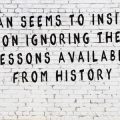Introduction: The Enduring British Fascination with Spiritual Guidance
Across the rolling green hills and ancient stone circles of Britain, spiritual guidance has long held a cherished place in the nation’s collective heart. This enduring fascination is more than a fleeting trend; it’s a thread woven through centuries of myth, legend, and daily life. From the shadowy whispers of the druids among mist-draped oaks, to the quietly bustling parlours of modern-day psychics in bustling market towns, the British approach to seeking wisdom from beyond has always reflected a unique blend of reverence for tradition and openness to new possibilities. The allure of understanding life’s mysteries—whether through tea leaves, tarot cards, or a trusted medium—continues to resonate deeply across communities. In this article, we explore how these traditional British approaches to spiritual guidance have not only survived but flourished, shaped by local heritage and cultural nuances. As we journey through these stories and customs, we’ll discover how the choices Britons make when selecting a psychic are often rooted in regional identity, ancestral legacy, and an ever-present yearning for meaning amidst the ordinary rhythms of life.
2. Historical Roots: Spiritual Traditions Across the British Isles
The spiritual landscape of the British Isles is a tapestry woven with threads from ancient times, where folklore, legend, and everyday life intermingle. Throughout history, spiritual guidance here has never been a monolithic experience; rather, it has evolved through the unique character of each region, shaped by local beliefs and customs. The Celts, who once inhabited much of Britain, held deep reverence for nature and the unseen realms, entrusting druids with the role of mediators between worlds. These early spiritual practitioners were not only advisors but also healers and keepers of sacred knowledge.
Folklore and Local Legends
Across villages and towns, tales of wise women—sometimes called ‘cunning folk’—and seers have persisted for centuries. These figures were often sought for everything from interpreting dreams to healing ailments or warding off misfortune. Their wisdom was passed down orally, blending pagan traditions with Christian influences as time moved forward.
Enduring Presence of Local Seers
While urbanisation brought change, the presence of local psychics continued in many communities. In remote areas such as the Scottish Highlands or Cornish moors, people still turned to those perceived as spiritually gifted for guidance rooted in ancestral tradition.
Key Figures in British Spiritual Guidance Through History
| Era | Spiritual Guide | Main Role | Cultural Significance |
|---|---|---|---|
| Celtic Britain | Druids | Mediators & Advisors | Sacred knowledge & connection to nature |
| Medieval Period | Cunning Folk/Wise Women | Healers & Diviners | Blended pagan & Christian practices |
| Victorian Era | Spiritualists & Mediums | Communication with spirits | Rise of séance culture & parapsychology |
| Modern Day | Local Psychics/Mediums | Personal guidance & healing | Acknowledgement of heritage and renewed interest in folklore traditions |
This rich interplay between heritage and practice shapes how British people approach spiritual guidance even today. Choosing a psychic here is often as much about recognising local legacy as seeking insight—honouring the age-old connection between land, community, and the mysteries that lie just beyond ordinary sight.
![]()
Cultural Identity and Local Heritage: How Regional History Shapes Psychic Choices
Across Britain, the quest for spiritual guidance is often deeply entwined with a sense of place—a connection to one’s county, town, or village that transcends the everyday. The echoes of local history resound in the way people seek out psychics and spiritual advisors, infusing each encounter with layers of ancestral narrative and collective memory.
The Mysticism of Scotland
In the mist-laden glens and ancient stone circles of Scotland, spiritual seekers are drawn to psychics whose practices are steeped in Celtic mysticism. Here, the reverence for seers—known as “second sight” in Highland folklore—is not simply a matter of entertainment, but a cherished part of cultural identity. Many Scots look for spiritual guides who honour these traditions, weaving tales of faeries and ancestral spirits into their readings. Choosing a psychic in this context is an act of connecting with centuries-old rituals and reaffirming bonds with those who came before.
Cornwall’s Legends and the Modern Seeker
Travel south to Cornwall, and you’ll find another tapestry of myth shaping the local approach to spiritual guidance. The legends of King Arthur, mermaids off the rugged coast, and Poldark-era charmers have fostered a unique brand of psychic tradition. In Cornish villages, locals often favour mediums who channel these legendary themes—offering guidance that feels rooted in the wild romance and magic of their land. For many, choosing such a psychic is about more than answers; it’s about participating in an ongoing story that defines their home.
Heritage as a Compass
Throughout England’s shires, Wales’ rolling hills, and Northern Ireland’s storied landscapes, this interplay between heritage and psychic practice persists. People instinctively seek out spiritual advisors whose methods resonate with local customs—be it reading tea leaves in Yorkshire or interpreting omens along Welsh riversides. These choices reflect not only personal beliefs but also a desire to preserve regional character in an ever-changing world.
Rooted Guidance for Modern Lives
Ultimately, the role of local heritage in choosing a psychic underscores a broader truth: British approaches to spiritual guidance are rarely generic. Instead, they are shaped by landscape, legend, and lineage—inviting each seeker to find meaning at the intersection of personal intuition and collective memory.
4. Community Trust: The Value of Word-of-Mouth and Generational Recommendations
Within the British Isles, spiritual guidance has always been closely intertwined with a sense of community trust and local wisdom. Unlike the flashy adverts or bold signage that might catch one’s eye elsewhere, British seekers of psychic insight are far more likely to heed the whispered recommendations of friends, neighbours, or even their own family lineage. This quiet reliance on word-of-mouth is not merely tradition; it is a deep-rooted aspect of the national character that shapes how people select a psychic or spiritual guide.
Generational recommendations hold particular weight in Britain, where stories about “the local medium” or “the wise woman at the end of the lane” are lovingly passed down through families. It is common for someone seeking guidance to first consult an elder relative—perhaps a grandmother who remembers attending tea-leaf readings after church, or an uncle who swears by the accuracy of a certain tarot reader in town. These personal anecdotes carry far more influence than online reviews or distant celebrity endorsements.
Community reputation is equally significant. British psychics often build their credibility over decades, quietly helping people through life’s crossroads and gaining trust one client at a time. In small villages and close-knit urban neighbourhoods alike, news of a truly insightful reading travels fast, while tales of disappointment serve as cautionary tales. This organic system of vetting ensures that those seeking spiritual guidance can feel secure in their choice.
The table below illustrates how different sources of trust play into the traditional British approach to choosing a psychic:
| Source of Trust | Typical Influence | Example Scenario |
|---|---|---|
| Word-of-Mouth | High | A friend shares their positive experience with a local clairvoyant over afternoon tea. |
| Family Tradition | Very High | A mother recommends the same palm reader she visited as a teenager to her daughter. |
| Community Reputation | High | The village hall’s noticeboard features regular testimonials for a respected medium. |
| Online Reviews/Advertising | Low to Moderate | An internet search yields mixed results, but these are weighed less heavily than local opinion. |
This reliance on community trust and generational wisdom reflects not only the British love for continuity and heritage but also an intuitive belief that true guidance comes from those who have quietly earned their place within the fabric of local life. For many in Britain, selecting a psychic is not just about seeking answers—it is about honouring the stories and traditions that have shaped their journey thus far.
5. Modern Perspectives: Adapting Traditional Guidance to Contemporary Life
The heart of British spiritual guidance has always pulsed with a sense of reverence for tradition—ancestral wisdom, time-honoured rituals, and the quiet intimacy of local folklore. Yet, as Britain evolves into an ever more cosmopolitan society, today’s psychics are called to walk a delicate path between honouring the old ways and embracing the needs of a modern audience. Many contemporary seekers approach psychic readings not only out of curiosity or desperation but as part of a holistic search for personal meaning, self-empowerment, and community connection in a rapidly changing world.
Respecting the Roots While Shaping New Branches
Modern British psychics often draw on classic tools such as tarot, tea leaf reading, and mediumship, weaving these into their practice alongside new methodologies like energy healing or intuitive coaching. The language and tone have subtly shifted; where once there might have been hushed parlours and veiled predictions, now there is open discussion about mental well-being, emotional resilience, and spiritual growth. By updating traditional frameworks with contemporary insight, psychics create safe spaces that respect both heritage and individuality.
The Evolving Expectations of Spiritual Seekers
Today’s clients come with diverse backgrounds and expectations. Some crave the nostalgia and comfort of an old-fashioned reading, while others seek guidance that resonates with present-day dilemmas—career changes, relationship dynamics, or questions about purpose in a digital age. British psychics respond by blending ancient symbols with modern narratives, ensuring that sessions remain relevant yet still echo the wisdom of generations past.
A Subtle Shift in Practice
This balance manifests in practical ways: online consultations echoing the privacy of the parlour; group workshops that revive communal storytelling; ethical codes that reflect both historical integrity and twenty-first-century sensibilities. In this ongoing dance between tradition and innovation, the spirit of British guidance remains unbroken—rooted in heritage, yet ever reaching forward to meet the soul’s evolving call.
6. Conclusion: Honouring Heritage While Embracing Personal Intuition
The search for spiritual guidance in Britain is woven with the golden threads of tradition, echoing centuries-old customs and quietly whispered family stories. Yet, as each generation steps into its own light, there is a gentle but persistent pull towards personal intuition—a sense that answers might be found not only in the wisdom of our ancestors but also within ourselves. This ongoing dance between heritage and individuality shapes the way Britons seek psychic insight, blending the comfort of familiar rituals with the courage to follow one’s inner calling.
Local customs still hold a profound sway over whom we trust on our spiritual journey. The village medium or city clairvoyant who knows the tales of the land can offer reassurance rooted in shared experience, acting as both guide and guardian of local lore. At the same time, modern seekers often find themselves at a crossroads, balancing respect for age-old practices with the freedom to explore new paths—perhaps venturing beyond the traditional tea leaves or tarot cards to embrace meditation circles, crystal healing, or simply listening to their own dreams.
In this delicate interplay, British spirituality remains alive and evolving. Each choice—a trusted psychic recommended by neighbours, or a spontaneous reading at a bustling market—becomes part of an unfolding story. Local heritage provides the foundation; personal intuition adds colour and movement. Together, they invite us to honour where we have come from while bravely stepping forward into what feels true for us today.
Ultimately, it is this union of legacy and self-discovery that continues to inspire trust in those seeking guidance across Britain. Whether drawn by ancestral echoes or intuitive nudges, we are reminded that our spiritual path is both ancient and ever-new—a living testament to Britain’s rich tapestry of faith, mystery, and self-exploration.


